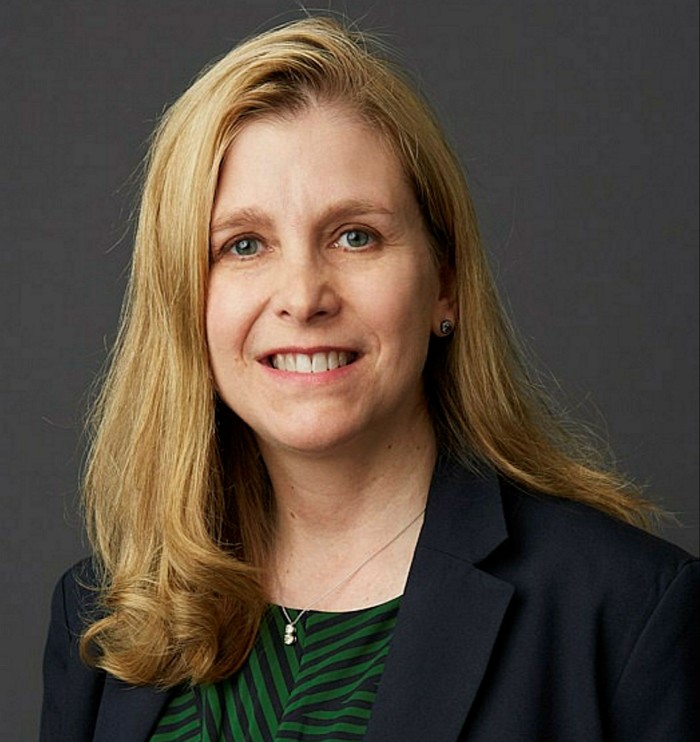‘The pay rates for lawyers are unsustainable’

Roula Khalaf, Editor of the FT, selects her favourite stories in this weekly newsletter.
It has been a bumper end-of-year bonus season at US law firms, but many are questioning whether sky-high pay is the way to retain their best staff.
Rising rates of employee attrition and burnout among mid-ranking associates have triggered a rethink among the most profitable firms. The flurry of bonuses at the Wall Street elite has continued, but firms are also devising programmes to retain talent, with a focus on wellness and mental health.
Associates are sceptical about such schemes, however. They say they can seem like surface-level attempts to fix deep-rooted issues and that late nights and a lack of breaks are the real problem.
One associate at a US law firm told the Financial Times: “I am working from 8am until 11pm solidly and weekends too. You think, is this really my life? It’s just putting work above all else, but I’ve made my peace with it.”
The top firms have been deluged with work over the past year amid a blistering 12 months for dealmaking and private equity investing. Firms such as Kirkland & Ellis have notched up record years for revenue, putting a strain on hard-working younger lawyers.
In their own words: hours, workload — and feeling needy

The FT invited lawyers at North American law firms and companies to talk about their workload and the general pressures they currently face. Here is a selection:
In-house private equity lawyer
“There is so much [merger and acquisition] activity at the moment. I was at an event . . . where the partners were saying they just couldn’t keep hold of associates because there were so many offers available.
“[It’s bad at law firms but] it can be the same in-house. You’re not the engine making money, you’re a support service . . . You end up working late nights, weekends and holidays because you just don’t have enough people.”
Private equity associate
“Last week, I didn’t go to bed before 2am and this week . . . I know people who have been working some insane hours this year. Private equity is normally busy but there are people [in my team] who have done over 400 hours in one month.
“At this end of the spectrum, firms will have billable targets of between 1,800 and 2,000 hours for the year . . . the private equity team’s average [at my firm] has been around 2,500 billable hours. The most I’ve ever done is 300 a month and that was horrific.”
Privacy associate
“I know everyone says the people who go into law are alpha, but I think we’re really needy. [You do] get the alpha males, but it’s the ‘wanting to please’ thing, finding it really hard to switch off.
“You want to be good, essentially, and if partners give you a treat to say thank you, then you’ll be really happy . . . The clever partners are the ones who will give you the crumbs and then you’ll go into the trenches with them when they ask you to work on a Sunday.”
Partner
“[The workloads] are completely awful. We are very generous in terms of pay, but it doesn’t make it right. We don’t do it on purpose. It’s also just not enjoyable. You can’t go on a date, you can’t take your mum to the theatre . . . it’s just relentless.”
Recruitment company Major, Lindsey & Africa says “client demand for hours is up 15-25 per cent this year [globally]”, leaving law firms struggling to find the staff to meet demand. Meanwhile, there has been a near 50 per cent rise in associate attrition in 2021, globally, according to data from Leopard Solutions, a legal business intelligence company.
That has triggered a bonus arms race at the top US law firms.
In November, Above the Law, a website that tracks lawyers’ pay, revealed that Cravath, Swaine & Moore had increased bonuses across all associate cohorts, with the most senior paid $115,000. That came a month after Paul, Weiss, Rifkind, Wharton & Garrison told staff they were in line for a discretionary bonus for exceptional work in the first six months of 2021. The firm will award another round of discretionary bonuses next year for the second half of 2021.
A survey by Above the Law found that almost 60 per cent of lawyers at big US firms were predicting higher bonuses this year. Firms began handing out “special” or “appreciation” bonuses last year to associates as they sought to adjust to the isolation and stress in the early months of the Covid-19 pandemic.
Salaries have also soared to new highs in the chase for talent. Davis Polk & Wardwell triggered a fresh spate of increases earlier this year when it announced first-year associates would be paid $202,500.
According to Biglaw Investor, which tracks pay trends across the biggest US law firms, the average first-year associate salary for 2021 is $205,000, up from $190,000 the previous year, with an annual bonus of $20,000. Lawyers in the US are generally paid according to the Cravath System, meaning they use the New York firm’s remuneration as a benchmark.
But there is a groundswell among firms for cultural solutions that knit teams together, given the unsustainable nature of simply paying lawyers more and more money.
A Thomson Reuters survey of law firm operations managers and executives found they felt lawyer recruitment and retention was the biggest risk to profitability, followed closely by rivals poaching staff.
“In last year’s report, concerns about talent didn’t even make the top five for the highest risks to firms’ futures, but have now increased significantly,” it said. “More than half of firms (51 per cent) now view acquiring and retaining talent as a high risk to future profitability.”
Firms are focusing on mental health training and wellness programmes — such as Peloton fitness memberships and yoga classes — as a way of heading off burnout and attrition.
McDermott Will & Emery offers its associates 25 billable hours’ worth of credits for mindfulness sessions. Other initiatives from the firm include guided meditation and mental health support. Morgan Lewis introduced training on stress management and resilience, as well as hiring guest speakers on wellness and addiction during the pandemic.
Younger associates are not driven by money in the same way as older staff are, argues Natasha Harrison, outgoing managing partner at Boies Schiller Flexner. “Throwing money at [associates] is a short-term fix — they just burn out and leave anyway. The pay rates are unsustainable. I don’t think it’s the solution.”
More stories from this report
Robin Belleau, director of wellbeing at Kirkland & Ellis, trained as a lawyer before becoming a counsellor and now works as an intermediary who puts partners and associates in touch with medical professionals and trainers.
Lawyers’ “unique way of thinking” makes it hard to find therapists for them, she says. They “are perfectionists, pessimists and issue-spotters”. The firm brought in a psychologist and an addictionologist to speak to partners early in the pandemic.
“I know people who’ve left other firms that just offer a different quality of life,” says one associate at a US firm. “Some firms are pitching a job saying ‘we know where you’ve come from but we’re not like that’.”
Case studies
‘Winner’ indicates the organisation won an FT Innovative Lawyers 2021 award
People and skills
WINNER: Latham & Watkins
When court trials were conducted virtually because of the pandemic, the firm launched an “observation deck”, where associates can watch trial proceedings that the firm is involved in, and participate in a Q&A afterwards with the lawyers. These hearings are kept in a searchable database and the list is updated regularly to help associates find trials relevant to their practice area or a particular point of law. The firm has provided access to more than 200 cases to date, across 35 jurisdictions.
Eversheds Sutherland
The litigation department has created a training programme to teach associates business development skills. It has created an “associate board” to offer training on topics such as how to publish thought leadership articles and how to create a personal brand. The firm says it has made the promotion process for new partners more efficient as associates moving up to partner level now have established client contacts, thanks in part to this programme. It has helped to bring new client referrals and expand the scope of existing client relationships.
Kirkland & Ellis

In 2019, the firm recruited a director of wellbeing, Robin Belleau, a licensed therapist and a former qualified lawyer. The firm is able to offer both preventive measures against mental ill health and substance abuse problems, as well as clinical care. The firm’s wellbeing offerings are available to business professionals and attorneys across all offices. Belleau’s qualifications mean she can conduct assessments, design care plans and make referrals for members of the firm. She also plays a key role in integrating people back into the firm following a mental ill health related absence.
McDermott Will & Emery
While many law firms offer career coaching for lawyers, this firm’s programme stands out for its comprehensive and deep approach. The coaching is not limited to a specific number of sessions and even extends to “friends of the firm” and alumni — with ongoing support offered to lawyers even if they choose to leave the firm. Sessions are confidential and focus on the individual’s needs. The programme attracts around 15 new participants per month.
Morgan, Lewis & Bockius

The firm offers a wide variety of programmes and activities to help employees manage their wellbeing, focusing on a positive psychology approach that encourages people to reflect on what they are grateful for. One example is the firmwide “moving together” challenge in which people shared photos of themselves taking part in physical activities, from sports to gardening, to encourage others to take time away from their desks. As the firm worked remotely, it offered more than 3,000 live virtual exercise classes and encouraged people to send thank you notes to each other to foster kindness and connection.
Morrison & Foerster
The litigation department worked with an external consultancy to run design-thinking training, to help lawyers improve their interactions with clients when working remotely. The lawyers used what they had learned to develop four new projects at the firm, including client collaboration dashboards, which will be available to all client teams, and a client training programme to improve business development skills. Other departments are looking to replicate the process.
Orrick
To encourage employees to take proper breaks, the firm is offering 40 hours of bonus-eligible holiday time for those who take a full week off with no interruptions for emails or calls. To make this feasible, a buddy system ensures work obligations are covered by another colleague, and clients were consulted on the move. Employees with childcare responsibilities can take the time in smaller increments if needed. Since the programme was made public, other US firms such as Wilson Sonsini have announced similar policies.
Troutman Pepper Hamilton Sanders
As the firm underwent a merger in 2020 and adapted to the pandemic, it implemented a resourcing platform that better shows associate availability, and the skills within the firm. One result is that a more diverse pool of talent is being put forward for work because work allocation is less relationship driven. It also helps the firm to match associates with projects they are likely to find interesting. The platform is currently implemented across 11 practice areas and the firm is working on a version that key clients can access.
Comments